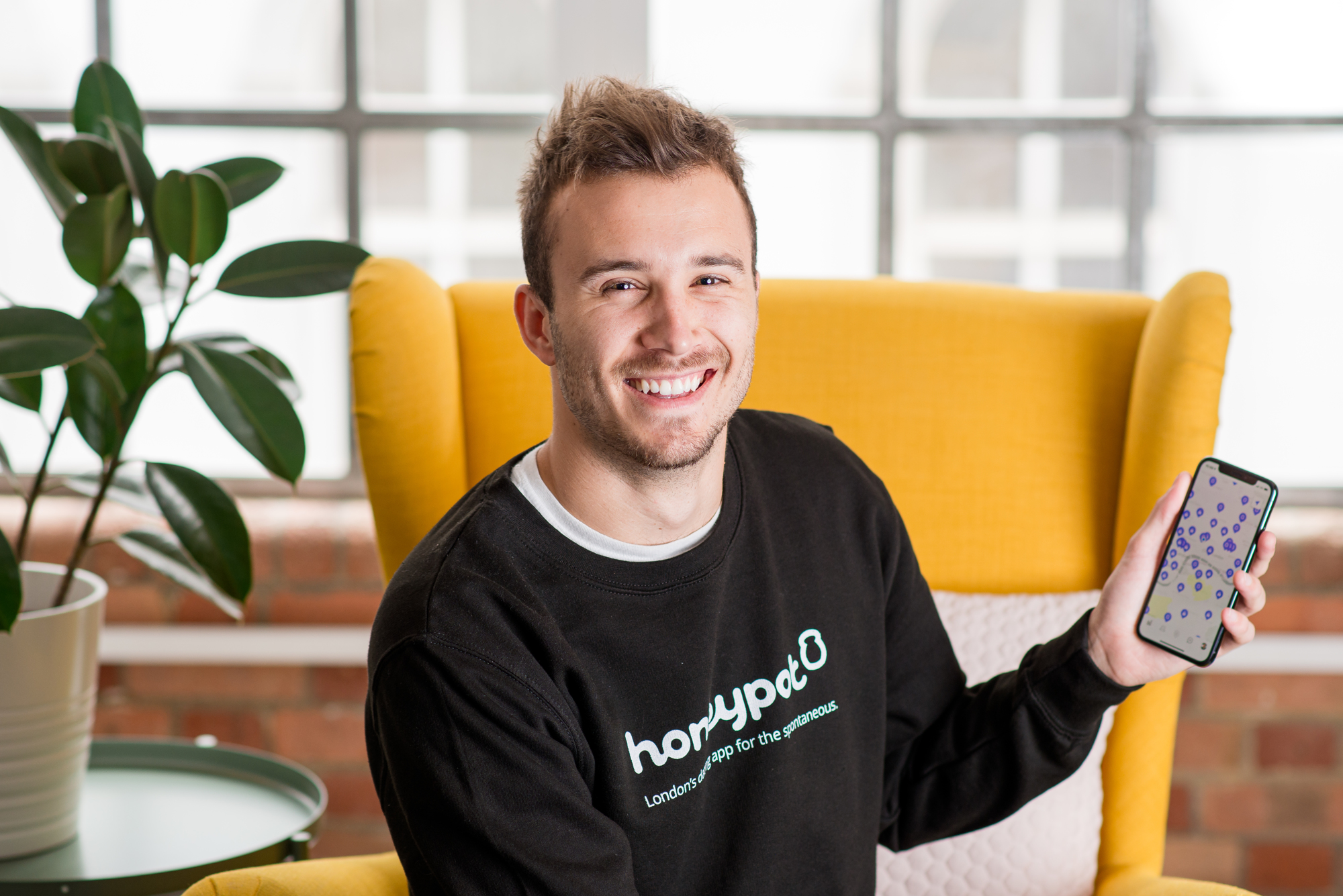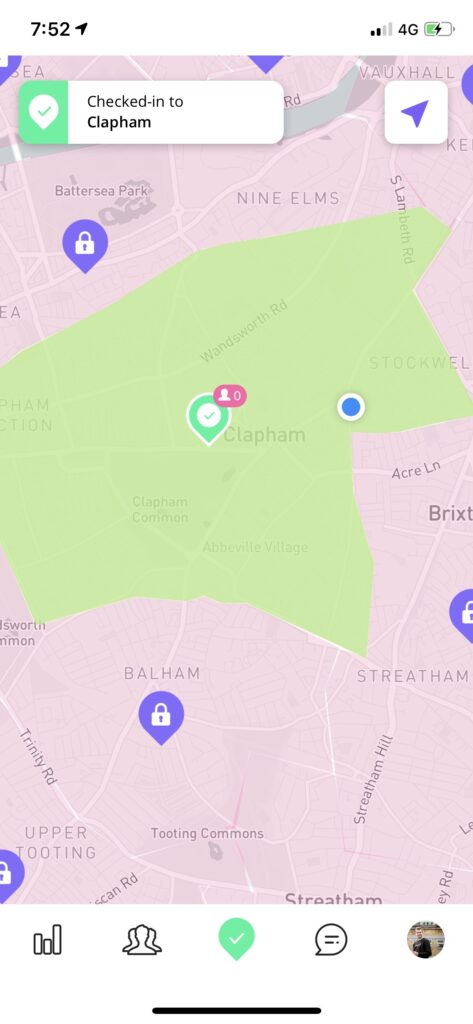
George Rawlings, the entrepreneur on a mission to deformalise dating

Everyone is looking for real connection when it comes to romance. And in theory, dating apps should make it easier to find that elusive someone – letting the user flick through thousands of faces via the convenience of a smartphone.
But the experience can be a little…underwhelming. Apps like Hinge, Bumble, and Tinder mean endless swiping, lots of messaging, and very little chance of actually meeting anyone. There’s a grim bit of slang to sum up romance in the age of apps: the Tinderpocalypse.
George and his single friends experienced the swipe-and-message culture and were deeply unimpressed: “You match and it’s all a bit boring in between. What small talk do you have? What do you say? More often than not the conversation just dies.”
“It’s a different breed of dating app because it’s very much in the moment”
George described how he and his co-founders, Matt and Imogen, were waiting for an Uber, which arrived in 8 minutes, and the thought came to them “why can’t we do this with dating?”. With this revelation the concept of Honeypot was born.Their mission is to end the formality of online dating and get people actually meeting. “It’s a different breed of dating app because it’s very much in the moment,” says George. “It’s all about right now, very instant- what are you up to at this point in time.”
The hook is to create Honeypots – zones where users can arrange to meet for a very quick date. So quick the Honeypot team call them microdates.
“It’s done using geofences,” says George. “We’ve got predetermined locations around London where you check-in, say you’re available, and meet someone minutes later for coffee.”
This immediate approach cuts out the time-consuming messaging apps like Tinder. You just see who’s checked in to your Honeypot zone, and buzz them. If they accept, you can meet within moments. “Lots of dating apps focus on interests and criteria. I don’t care if you like the same movie as me,” says George. “Just meet the person!”
It’s a scalable concept, “We could open up a Honeypot in Sydney in two minutes.”
“Honeypot is growing across London, and will be opening new areas based on feedback from the public.” George reveals, “They will be in places like Clapham, Brixton, Covent Garden, Soho. Then we’ve got pop-ups at festivals. Then there will be Honeypots at Gatwick, Heathrow and Stansted.” He explains it’s a scalable concept. “We could open up a Honeypot in Sydney in two minutes.”
There’s a great backstory to the app. It began with the ultimate motivation: George and his co-founders were single, and realised they needed to enter the dating scene. “We were all single and needed boyfriends and girlfriends. We were in our late 20s: I’m 26 now and we thought the dating apps weren’t working for us.”
The Honeypot concept pivoted several times. “We came up with an idea that wasn’t actually a dating app, that was more of an event. We tried basically to move singles to different locations around London, different bars. And that’s what the Honeypot was called. The feedback was, ‘How do I know who’s there?’”
The solution? “We were very much anti-dating apps before. Our whole focus and our value was to ditch the dating apps. We then realised we needed an app for people to break the ice when they are at our events. So Honeypot became a dating app. We went full circle.”

In fact it’s pretty common for great businesses to pivot in the early stages. Twitter started off as a podcast subscription service, Groupon promoted charities, and Airbnb wanted to help people visiting conferences by renting airbeds, hence the name.
The founders of Honeypot love running their own business. They are passionate about saving their users’ time, and found the same ethos at Tide. “Honestly, I set up our Tide account in about three minutes,” says George. “I’m not joking.”
The mobile-first thinking of Tide is ideal for an agile start-up. “I like how Tide is completely digital,” observes George. “You don’t need to visit a branch. You’ve got everything you need. It just makes it way more accessible.” He also points to no fees for card payments abroad, which could be useful when Honeypot expands overseas. “This is the future of banking,” he says.
Could Honeypot be the future of dating? The logic of the app makes total sense. Investors are enthusiastic. The first round of funding on Crowdcube raised £117,000 from 119 investors in nine days.
George and his co-founders can’t wait to launch Honeypot in more locations across London. “Passion is where great ideas come from,”George says. “There is a reason so many great businesses are born from past experiences. You find a service and ask yourself how can you improve it. How can you make it more effective, so your users love it? It’s not just about making a quick buck. That’s what we’re doing now… And we still need to find ourselves girlfriends and boyfriends!”
Check out whether a Honeypot is open in your area!


